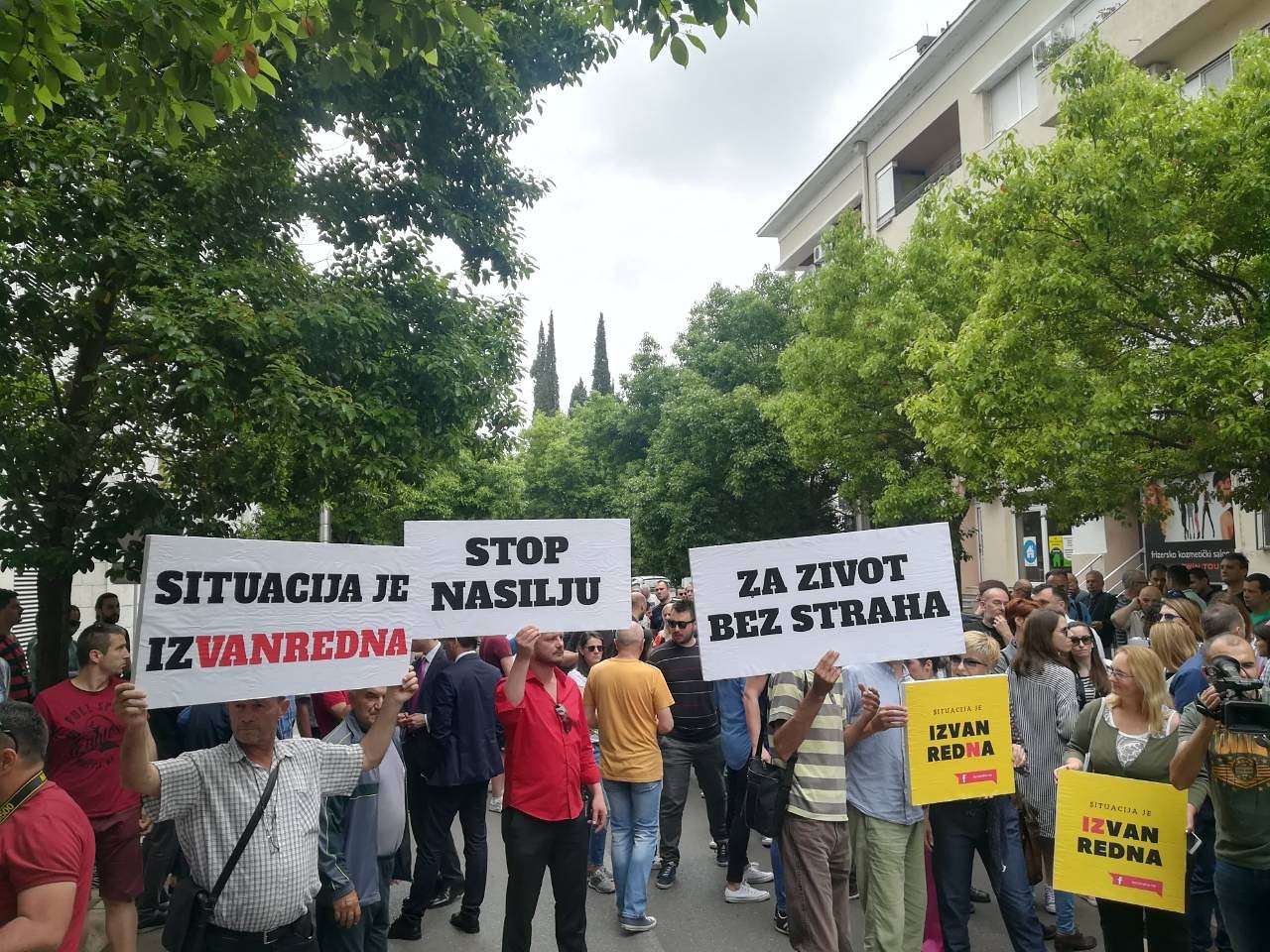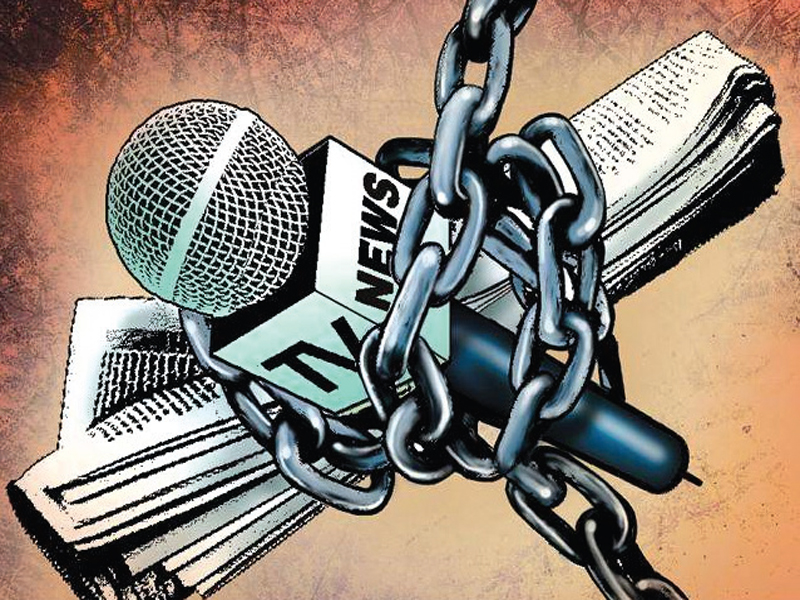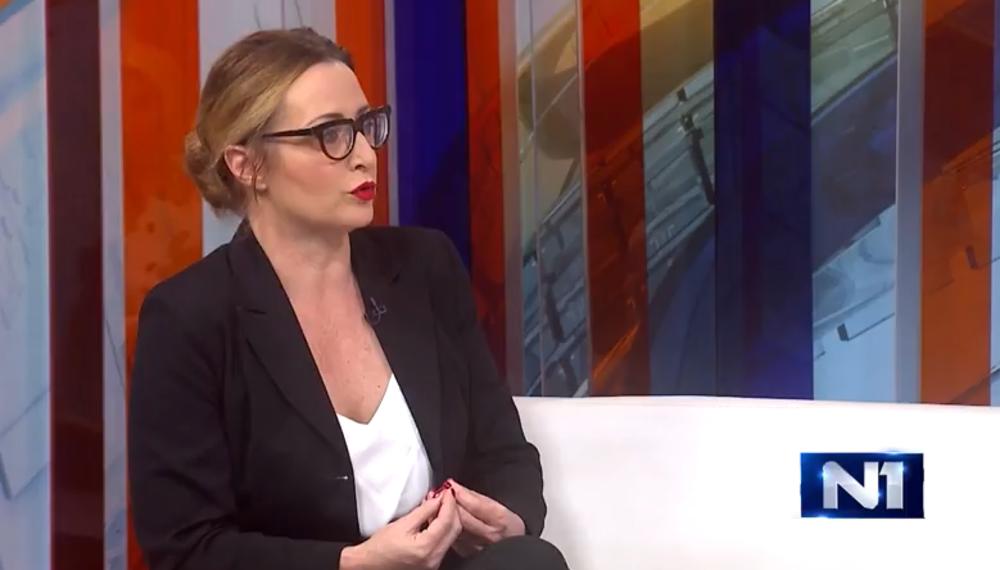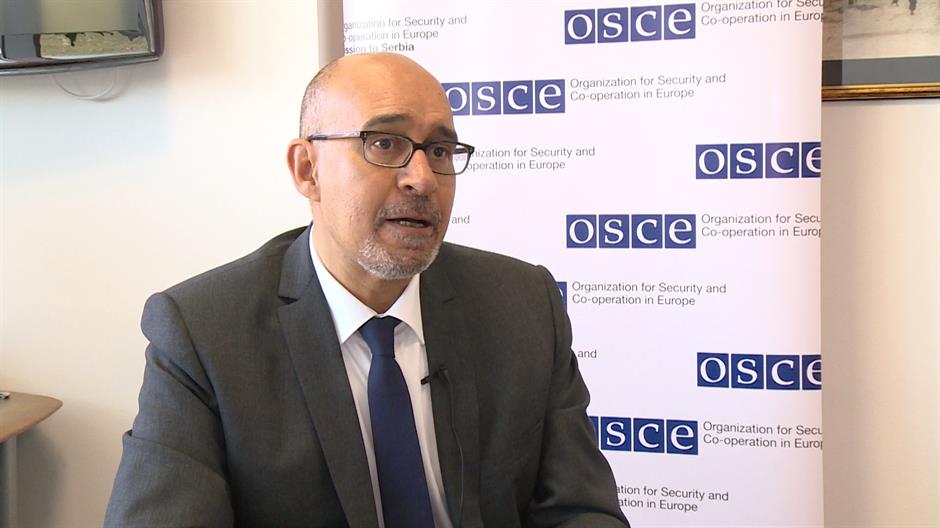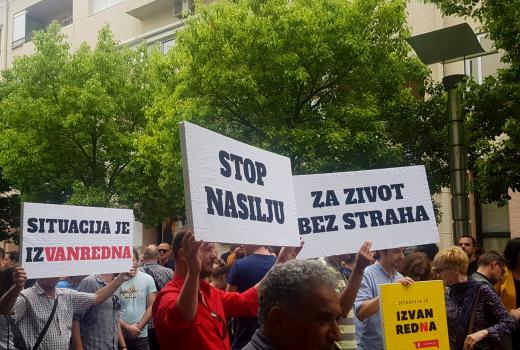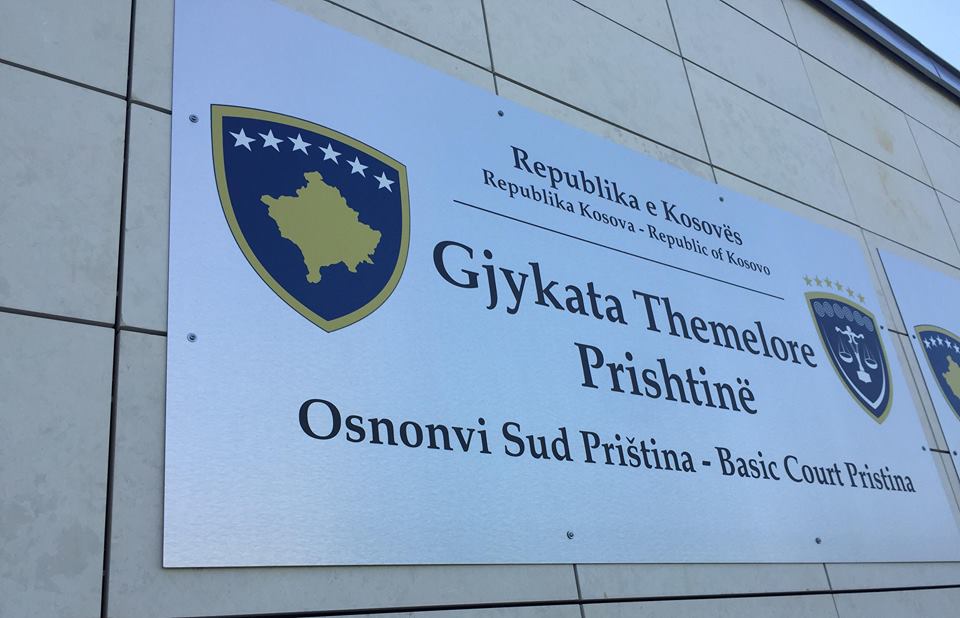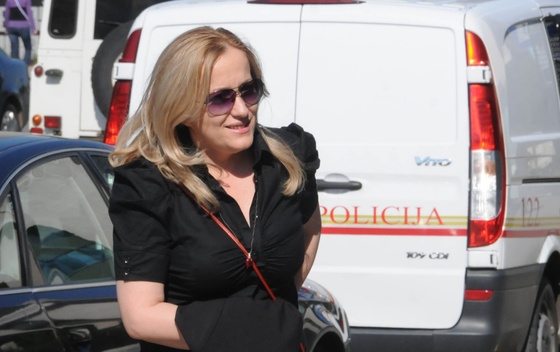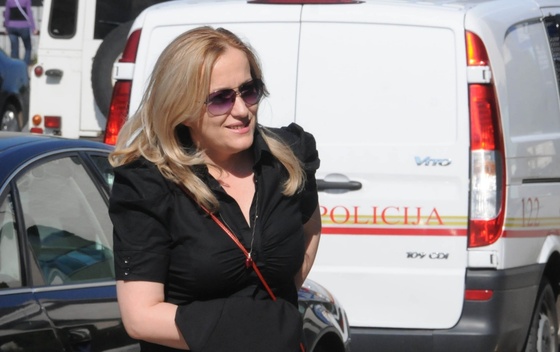PODGORICA 14.05.2018. – Local media employees describe their workplace like this: low and irregular salaries, part-time jobs and very old equipment.
Even though they aren’t at the epicenter of social and political interest, problems they are facing aren’t much different from those of media workers in the Capital.
In Montenegro there are 14 local public radio stations (Andrijevica, Bar, Bijelo Polje, Budva, Cetinje, Danilovgrad, Herceg Novi, Kotor, Nikšić, Pljevlja, Rožaje, Tivat, Ulcinj) and three televisions (TV Budva, TV Nikšić and TV Pljevlja). Most of them are having financial issues, so the workers haven’t been paid for months.
Edin Zuković from RTV Pljevlja says that month after month the workers are not sure if they’ll get the money they earned.
„In a situation when a worker can’t ensure the survival of a family, he can’t give his best and do the work professionally “, says Zuković.
In few local media with stable finances, young journalists with university education have failed to get permanent employment for years.
„I must restrain my impatience with the intention of gaining a permanent job, because, as my director says, I have to be satisfied with a chance to be an associate in the local radio in my hometown “, says our interlocutor, who has worked as a part-time associate in the local media for five years.
She says she does the same work as her colleagues with a longer working experience, and she has been paid three times less:
“If I didnt need the money, I would not put up with all this. It will be better, only be patient – is the sentence I hear everyday, and I believe in it less and less. ”

According to a survey conducted by the Media Union of Montenegro, almost 8% of journalists have a part-time status, while 11% of the respondents work on a specific time period. The respondents agreed that their economic situation got worse even compared to the previous year, and 53 % said that the economic situation weakened significantly, and that the incomes in local public broadcasters were lower than in the state-level media.
The Media Union reminds that the Law on Electronic Media foresees the financing of public broadcasters from the state budget and the budgets of local authorities, and that this regulation does not stipulate the part of the budget to be determined to the state or local public broadcasters.
“There are various practices of local authorities in financing local public broadcasters. They are conditioned, not only by the local government budgets, but also by the type of broadcasters (radio or television),” the organization said.
Numerous studies involving journalists showed that the freedom of media reporting is limited, and that employees face self-censorship – when they must choose topics within the media.
Nevertheless, our interlocutors from local media rank 3 freedom of reporting in the editorial offices on the scale 1-5.
“When it comes to freedom of reporting, I have never had problems,” our interlocutor says, adding:
“I was never blocked for writing something or choosing a speaker, which may also depend on topic.”
However, she thinks that the key issue is that the media, she works in, has no clear editorial policy and discourages young journalists from doing more and better.
“The editorial policy driven by the principle of “being likeable and good to everyone” is not good. Considering that our founder is the Municipality and that`s the “branch we`re sitting on”, I would say that we are too soft in commenting the work of local government, which our citizens often condemn “.
This opinion is shared by her colleague from another local media.
“The general policy of non-confrontation with the financier creates atmosphere in which the aptitude of absolute freedom of work is treated as undesirable.”
Both agree that the editor’s influence on their work is mostly technical.
“I can not say that I have ever been under pressure to do something, but my sharpness is often criticized, post factum, however. It irritates, but it does not limit “.
However, she says that she was under indirect pressure from the interlocutors who asked the director how much she is „correct“ as a journalist.
“The mere fact that he has notified me about it every time, can be interpreted as a kind of pressure.”
Marijana Camovic from the Media Union believes that the this organization poll swoed that journalists put up with various influences of individuals.
“Even 76.6% of the respondents pointed out that editors affect their work greatly or partially ,” she said, adding that journalists agreed that they were almost unaffected by media owners and managers. That can be explained by the fact that management affects primarily editors who later impose these demands on journalists.
Abuse of copyright texts
Our interlocutors working in local public broadcasters are often confronted with the abuse of copyright texts. They say that it is not uncommon for the work of young journalists in local media to be abused and that in such situations they do not receive adequate protection of the editorial board.
“It’s not uncommon for the text or the subject I deal with to be found on pages or in the ether of another media, because our colleagues are correspondents of daily newspapers and associates of other radio stations, which seems to be very humiliating to my intellect, because if you raise your voice, you are automatically not a good colleague.”
Local public broadcasters also struggle with the lack of appropriate staff that can respond to the various challenges of this job.
“A young, high-quality and educated journalist is very hard to keep for more than a year. As soon as they get some sort of practice, they get away “.
Even bigger problem is, they say, technical staff.
“Without a good camera operator, editors … no matter how good the reporter is, it is not possible to do any kind of contribution, especially the TV show. And where are you supposed to find a good, educated camera operator, editors … who would work, let’s say, in TV Pljevlja. I’m not sure if there is any school or academy in Montenegro for that kind of job, and I think it is necessary. ”
The last two years for the Public Service broadcaster of Montenegro (RTCG) were very turbulent.
Due to frequent accusations of the public that RTCG works in favor of the ruling party, in the wake of the parliamentary elections in 2016, condition of the opposition to enter the Government of electoral trust was dismissal of the leading editors of this media house.
The director of television, the editor of the news program and the chief of the board then resigned. Following the shift of the RTCG management, the OSCE / ODIHR observation mission reported that some interlocutors in Montenegro praised visible changes in editorial policy.
Last year also, the new Director General of RTCG – Andrijana Kadija was elected. After that, with the votes of the ruling majority in the Parliament , on the basis of reports on the alleged conflict of interest, two members of the Council of the RTCG were removed, and then the President of the Council.
Because of the Council members replacements and, as they claimed, because of the political pressure of the ruling party on the members of this body and the independence of the RTCG, a group of NGOs organized a protest in front of the Parliament.
They claimed that the Parliamentary Administrative Committee, based on whose proposal the Assembly appoints members of the Council, acted unlawfully and that the aim of the ruling majority was to establish party control over the RTCG.
The problem of independence of RTCG is that it is mostly financed from the state budget. The latest amendments to the Law made a step towards securing the financial sustainability of the public service through a new model of financing of 0.3% of GDP, or about 17.8 million euros. In 2016, RTCG operated with a loss of 1.7 million euros, and had debt to the Broadcasting Center of 2.4 million euros.
Out of 1,245 media employees in Montenegro, 735 works are in the Public Service (data of the Media Union). This media house has 242 journalists, and their average salary is 572 euros.
Analysis of the Media Union shows that this media has its own Code of Ethics that provides rules of conduct of Council members, directors and employees, as well as ethical principles of advertising. However, the independence and autonomy of journalists and editors is prescribed by the RTCG Statute.
And the EU recommendation in the Montenegro’s Progress Report is that “the editorial independence of RTCG should be prioritized, as a truly independent public service that represents a key aspect of media pluralism. It is essential for RTCG to ensure editorial and financial independence from political influences and to ensure lawful changes in administration . ”
Our interlocutor, longtime journalist in the Public Service, on a scale of 1-5, estimates the freedom of reporting in this media house with 3.
“The editorial board determines some topics, but many of them are my choice. When I work my own TV show, all the topics are mine. However, on a daily basis, through the desk news, the management is also asked. I can not call it a clear censor. It is more ignorance and insecurity of the editorial boardwhat we should or shoul not say. In the Radio, the situation is better than TV, “she says.
Her work, she says, is directly influenced neither by the party, nor by the influential individuals and advertisers: “I have never been addressed by anyone of them.”
However, she stresses that some topics remain unprocessed or superficial, because, as she says, it is better not to tackle some issues.
The employees of RTCG were unionized and their Syndicate joined last year the Union of Free Syndicate and the Union of Media, as a representative branch union of the media. The media union has a total of 600 members, out of which two thirds are employed by the public media.
Our interlocutor is not a member of the Syndicate, but believes that the press and syndical associations must influence the status of media employees to be better. “I do not see that the unions influence those who decide on the position of journalists in society, but I believe they will succeed,” she said.
In order to help colleagues to protect their rights and regain reputation of the profession, journalists formed the Association of Professional Journalists of Montenegro.
“Journalists generally complain about a hard or shaky jobs, low salaries, being targets of mobbing … Public service colleagues are complaining about the political pressure , which is a consequence of the recent events in RTCG,” said Mila Radulovic from the association.
She believes that journalists have badly violated their rights and obligations under the Media Law, as well as the practice of the European Court of Human Rights.
“So far, we have participated in changes to some of the regulations concerning our work (Media Law, Law and Free Access to Information Law), we have a legal team that provides free legal aid and we trying to improve it. We are trying to strengthen our administrative capacity to be much more dedicated, “Radulovic said.


